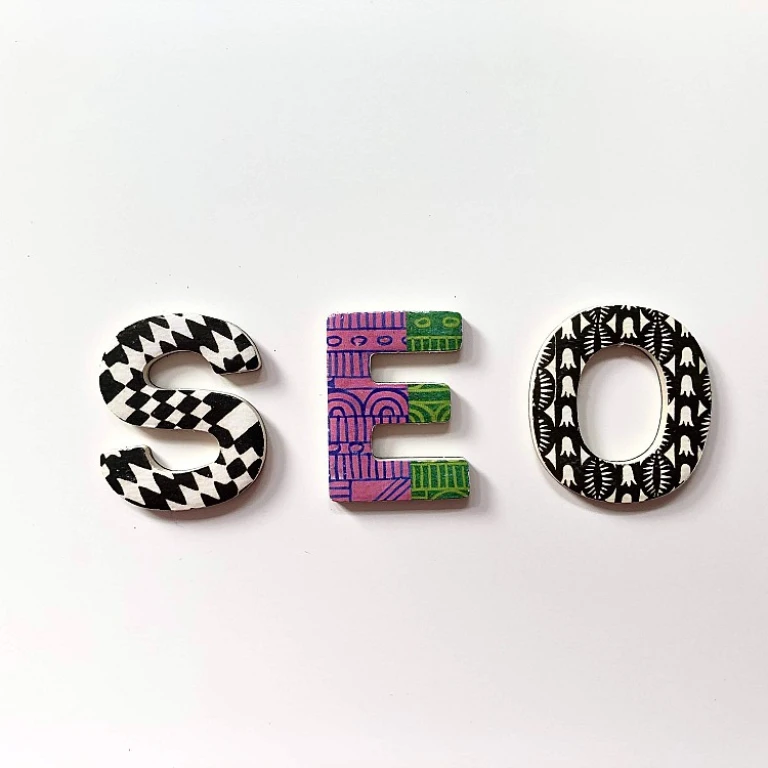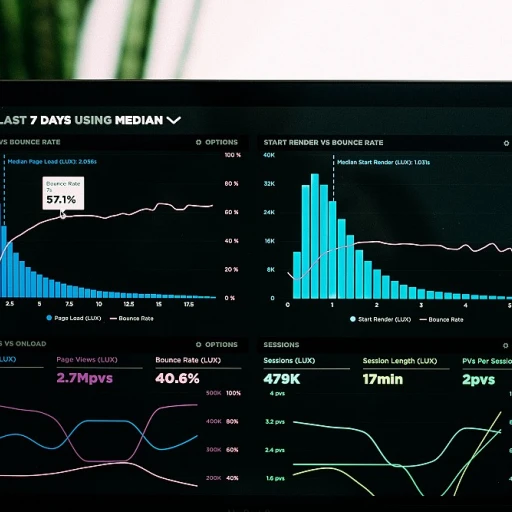
Understanding AI's Role in SEO
Revolutionizing Search Engine Optimization with Artificial Intelligence
Artificial intelligence has become an integral part of the digital marketing landscape, particularly in search engine optimization (SEO). As technology continues to evolve, AI helps marketers and technology companies streamline and enhance their SEO strategies. By leveraging martech stacks, businesses can automate processes that were once time-consuming and labor-intensive. In the United States, SEO professionals are increasingly adopting AI technologies to improve the efficiency and effectiveness of their campaigns. AI technology is being utilized to analyze vast amounts of data, providing insights that guide marketing and design efforts, ultimately helping to reach audiences more effectively. The integration of artificial intelligence into SEO allows for real-time data collection and analysis of user behavior. This improves targeting and personalization of content, which can lead to better engagement and conversion rates. Additionally, this technology innovation fosters a deeper understanding of search trends, enabling marketers to anticipate and adapt to changes faster than ever before. The utilization of AI in SEO also provides educational and training programs for students and professionals. By studying these AI-driven technologies, people can stay ahead of the curve and further their careers in technology marketing. Whether through formal education or online learning, there's a myriad of opportunities for skill development in this dynamic field. To understand how AI's role in SEO is poised for further advancement, you can explore more insights in this AI's role in SEO discussion about the future of search transformation.AI-Driven Keyword Analysis
Unleashing AI's Potential in Keyword Analysis
Artificial intelligence has transcended traditional keyword analysis, bringing forth innovative approaches in the world of search engine optimization. By harnessing the power of machine learning and data science technologies, these methods allow a deeper understanding of what users are searching for and, more importantly, why they are looking for specific information. Through AI technologies, keyword research has become more accurate and insightful. These systems analyze vast amounts of data and identify patterns within search queries that manual methods cannot match. With time, this enables search engine marketers to make informed decisions about keyword strategies, ensuring content reaches the intended audience effectively. One of the standout applications of AI in keyword analysis involves the use of natural language processing (NLP). NLP aids in understanding the intricacies of language, permitting marketers to anticipate how target audiences phrase their searches. This understanding is crucial, particularly as search engines like Google increasingly prioritize searcher intent over exact keyword matches. Today's AI-driven keyword tools go beyond simple keyword suggestions, offering valuable insights like search volume trends and competitive analysis. These tools can determine how specific keywords relate to different demographics, how competition is evolving over the years, and how target audiences' preferences change over time. For students and professionals in marketing technology, embracing AI for keyword analysis represents a significant educational opportunity. Training programs focusing on AI and SEO can provide hands-on experience with the latest tools, preparing the next generation for the rapidly changing digital marketing landscape. Furthermore, promoting technology education aligns with industry trends, showcasing the importance of technology innovation in real-time search marketing strategies. The data-driven nature of AI enables the collection of user behavior insights across platforms, such as social media and digital marketing channels, facilitating a more comprehensive view of user engagement. AI helps to design effective, targeted strategies that boost online presence not only within the United States but globally, amplifying the effectiveness of martech stacks that underpin modern marketing campaigns. As we continue to explore AI's potential, it's clear that its role in keyword analysis will only expand, leading to greater efficiencies and innovations in search engine optimization. For a deeper dive into what's ahead for AI and SEO, delve into this comprehensive guide on the future of AI in SEO.Content Optimization with AI
AI-Enhanced Content Creation and Refinement
Artificial intelligence has dramatically transformed the landscape of content creation within the realm of search engine optimization. As a critical component of SEO strategy, content optimization with AI not only aligns with current digital marketing practices but also enhances the overall quality and relevance of online material. AI technologies have made it possible for marketers to generate high-quality content rapidly and consistently. These innovations leverage complex algorithms and data sets to understand and predict user intent and preferences. As such, AI can suggest the best keywords, headings, and even structure content to maximize engagement and visibility.Personalized Content Development
One of the standout features of AI in content optimization is its ability to personalize content. By analyzing user behavior data and learning from past interactions, AI systems can tailor content that resonates with specific audiences. This personalized approach is instrumental for marketers looking to cultivate loyalty and foster engaging user experiences. Moreover, the integration of AI in this process allows for real-time adjustments and updates, ensuring the content remains relevant and aligned with current trends. This adaptability is particularly beneficial for industries experiencing rapid changes or those with a constantly evolving audience base, such as social media marketing or email marketing.Enhancing Content Strategy through AI Tools
Many technology companies have developed sophisticated tools that support content optimization with AI. These SEO platforms are capable of performing tasks like assessing readability, checking grammar, and optimizing structure, which can significantly streamline the content creation process. Employing AI tools allows marketing teams, including novices or student learning groups, to focus on strategy and creativity rather than mundane, time-consuming tasks. These tools also provide valuable insights that assist in the development of more effective marketing technology stacks. As SEO continues to evolve, the role of AI in content optimization will undoubtedly grow, with AI-driven applications becoming central to any robust digital marketing strategy. Furthermore, exploring how AI is promoting technology in content through { the growing use of stories versus reels } lies at the heart of many successful strategies today.Enhancing User Experience through AI
Optimizing Digital Experiences with Artificial Intelligence
In the ever-evolving landscape of digital marketing and technology, artificial intelligence plays a pivotal role in enhancing user experiences on websites and search engines. As consumers become more discerning with their online interactions, businesses are focusing on creating personalized and seamless experiences using AI-driven solutions. One primary way AI is transforming user engagement is through the analysis of vast data sets in real time. By leveraging advanced algorithms, AI allows companies to adapt and modify digital content based on user behavior and preferences. This data collection, sometimes compiled from social media and search engine interactions, helps businesses tailor their websites to better meet the needs of their audience. The integration of AI in user experience design is evident in martech stacks that businesses in the United States and across the globe are adopting. These stacks streamline marketing technology, combining various applications into cohesive systems that enhance consumer interactions. From email marketing campaigns to dynamic website interfaces, AI technologies automate processes, reducing the manual workload and allowing marketing teams to focus on strategic initiatives. AI also assists in implementing features like chatbots for customer service. These virtual assistants manage inquiries in real time, offering a level of support that would be challenging to achieve manually. By providing quick and accurate responses, businesses improve customer satisfaction and loyalty. Furthermore, AI plays a crucial role in personalizing content. By analyzing consumer data, technology companies can predict trends and tailor offerings to individual preferences. This personalization strategy leads to more engaging user experiences and is a fundamental aspect of promoting technology. In summary, the implementation of artificial intelligence within digital ecosystems not only optimizes the way people interact with digital platforms but also enhances overall user satisfaction. This continuous AI-driven improvement is an exciting reflection of how technology innovation is reshaping the marketing landscape.AI-Powered SEO Tools and Platforms
Integrating AI Tools for Greater Efficiency and Performance
The digital landscape is increasingly being shaped by artificial intelligence, and its influence on search engine optimization is no exception. Technology companies around the world are leveraging AI-powered tools and platforms to enhance their martech strategies and stay ahead in the competitive online marketplace.
One significant advancement is the integration of AI in data collection and analysis. By processing large volumes of data in real time, AI helps SEO professionals make informed decisions and tailor their marketing strategies effectively. This capacity to analyze and react to data instantaneously allows agencies to refine their martech stacks and enhance their email marketing efforts, ultimately promoting technology more effectively.
- Keyword Optimization: As discussed earlier, AI tools facilitate comprehensive keyword analysis, helping marketers choose the right terms that align with user intent. This improvement not only boosts search rankings but also enhances overall content relevance and engagement.
- User Experience: Enhancing the user experience is crucial in SEO. AI enables the design of more personalized and engaging digital interactions, adapting content in real time to meet the expectations of different audience groups.
- Social Media Insights: AI provides deeper insights into social media dynamics, crucial for optimizing content promoting efforts. With its capability to analyze trends and consumer behavior, AI helps in crafting targeted strategies that resonate well on social platforms.
Moreover, training programs and technology education are crucial in equipping students and professionals with the necessary skills to harness these advances. By investing in education and continuous learning, businesses can ensure their teams are well-prepared to leverage state-of-the-art AI tools and maintain a competitive edge.
The adoption of AI in SEO continues to drive innovation in this domain, setting the stage for further advancements in marketing and tech. As we integrate these technologies into our everyday practices, we witness not only enhanced efficiency but also the evolution of SEO into a more intelligent, adaptive field.
Future Trends in AI and SEO
Emerging AI Trends in SEO
As we look to the future, artificial intelligence continues to reshape the landscape of search engine optimization in profound ways. The integration of AI into SEO is not just a passing trend but a significant shift that is expected to grow and evolve over the coming years. Here are some key trends to watch:
- Real-Time Data Analysis: AI's ability to process and analyze data in real time is revolutionizing how marketers approach SEO. This capability allows for more dynamic and responsive strategies, enabling businesses to adapt quickly to changes in search engine algorithms and user behavior.
- Personalized User Experiences: AI-driven technologies are enhancing user experience by delivering personalized content and recommendations. This trend is particularly important as search engines increasingly prioritize user satisfaction in their ranking algorithms.
- Advanced Keyword Research: Building on AI-driven keyword analysis, future advancements are expected to refine how keywords are identified and utilized, making SEO strategies more precise and effective.
- Integration with Martech Stacks: As marketing technology evolves, AI will play a crucial role in integrating SEO strategies within broader martech stacks. This integration will help streamline marketing efforts and improve overall efficiency.
- AI in Content Creation: The use of AI in content optimization is set to expand, with AI tools assisting in generating high-quality, relevant content that aligns with user intent and search engine criteria.
AI's Impact on SEO Education and Training
The rise of AI in SEO also impacts education and training programs. As technology becomes more integral to marketing strategies, there is a growing need for training programs that equip students and professionals with the skills to leverage AI effectively. This includes understanding data collection, learning how to use AI-powered tools, and staying updated with the latest technology innovations.
In the United States and beyond, educational institutions and companies are developing courses and workshops focused on AI applications in SEO. These initiatives aim to prepare the next generation of marketers and SEO specialists to navigate the complexities of digital marketing in an AI-driven world.
Conclusion
AI's role in SEO is undeniably transformative, offering new opportunities and challenges for marketers. By staying informed about these trends and investing in continuous learning, businesses and individuals can harness the power of AI to enhance their SEO strategies and achieve greater success in the digital landscape.













